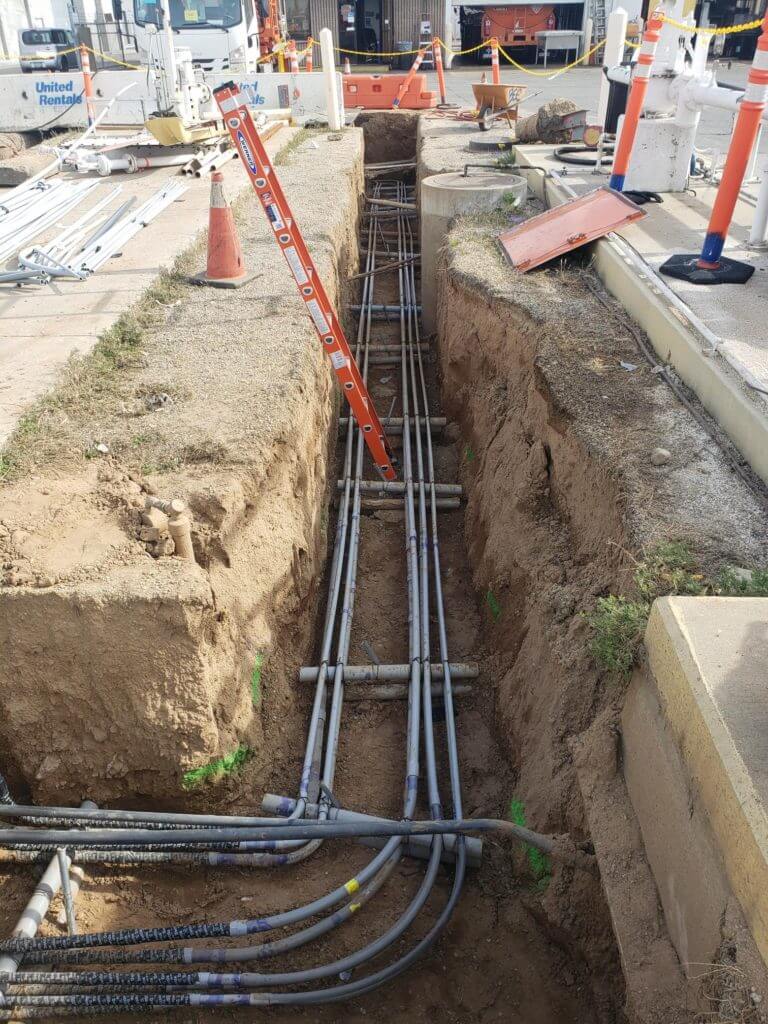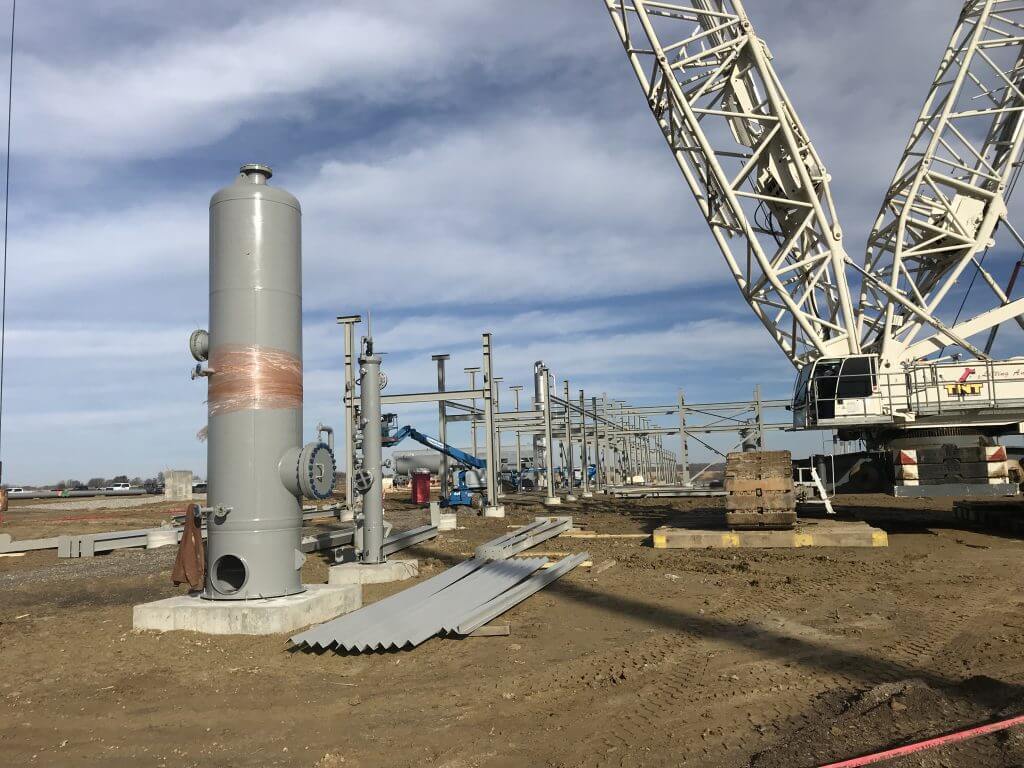


A study published by Global Industry Analysts Inc., revealed that the global market for oil and gas EPC is projected to reach a revised size of $234.5 billion by 2026. Upstream, one of the segments analyzed in the report, is projected to reach $106.2 billion alone by the end of the analysis period.
Clearly, EPC within the oil and gas industry is a massive market, but what exactly is it? And why is it growing? In this article, we’ll be explaining the definition of EPC, which industries are associated with it, and what the benefits are for both contractors and owners.
And if you’re searching for EPC solutions, contact Bodell Construction, a full-service EPC contractor with over 45 years of experience and 15 field locations across the United States.
In the construction industry, EPC is an acronym that stands for Engineering Procurement Construction. EPC is a type of project delivery model (or contract agreement) where contractors are responsible for the project from start to finish. In other words, engineering procurement construction contractors manage the project from initial design and engineering plans all the way through construction and completion of the finished product. Because of this comprehensive approach to project management, EPC projects are often called “lump sum turn key” projects, or LSTK.

Here is what is typically included in each stage of the Engineering Procurement Construction model:
Yes. As Utah design/build contractors with highly skilled teams in Value Engineering and Construction Management we offer each of the EPC services individually or as a one-stop construction alternative.
Our proactive, client-focused approach eliminates the friction between contractors and vendors that occurs during most other construction projects. Today, Bodell is one of the leading EPC contractors serving the commercial construction, commercial mining, oil and gas, and power industries. Our notable clients have included Leto Logistics, US Robotics, and Biomass.
Oil and gas is the industry most commonly associated with EPC, though other industrial and manufacturing industries also utilize EPC contracts.
The oil and gas industry is uniquely defined by three supply chain locations: upstream, midstream, and downstream. Upstream activities include finding and extracting oil or natural gas; midstream activities include storing or transporting raw materials; downstream activities include refining the raw materials and distributing the finished product to consumers.

Because this industry is so specialized, EPC contractors offer great value to oil and gas companies looking for efficient, cost-effective construction. Experienced EPC contractors, like Bodell Construction, can carry out entire projects in one supply chain area, such as:
For many small to mid-sized oil and gas companies, outsourcing select projects or entire processes is less risky than managing labor and services in-house. EPC contractors act as trusted partners, helping owners improve project quality while staying on time and on budget.
The EPC model streamlines each step of the design/build process. It also allows contractors to specialize in certain types of projects or industries. By gaining niche experience and an established network of subcontractors, suppliers, and consultants, EPC contractors can increase the efficiency of projects while decreasing costs.
When experienced oil and gas contractors manage a project from start to finish, they can find more opportunities to improve the project — opportunities that an owner may not recognize. This type of responsibility leads to greater satisfaction for the contractor while bringing invaluable benefits to the owner, too.
EPC is also incredibly beneficial for clients or owners who hire an EPC firm. A significant benefit of Engineering Procurement Construction contracts is simplified communication; owners only have to connect with the EPC contractor who will then, in turn, disseminate information and manage expectations among all subcontractors. Rather than sourcing, communicating, and managing multiple contracts for various stages of the project, owners only have one point of contact and one responsible party with an EPC contract.
As mentioned above, an EPC contractor can also typically save an owner time and money with a project. This is because an EPC contractor already has the skilled team and experience that prevents time-consuming errors and expedites project timelines.
If the ease of the EPC model sounds like something your company is missing, contact Bodell Construction. Our team is based in Salt Lake City, Utah, with the capabilities to serve the entire United States. Get in touch to learn how our EPC model can deliver your project both on time and under budget.